TRAINING GRANTS
2021-2022 TRAINING GRANT RECIPIENTS
TRAINEES
"Prevalence of two emerging Rickettsia species (Rickettsia species phylotype G022 and Rickettsia tillamookensis) in nymphal Ixodes pacificus in Northern California"

Erin Trent, BS
Erin Trent is a graduate student at Cal Poly Humboldt. She has a Bachelor of Science in biological sciences, systems physiology from San Jose State University. Erin became interested in tick research after her sister was diagnosed with Lyme disease, as well as Babesia and Bartonella co-infections. In the time she's been in graduate school working in Dr. Zhong's Lab, she has gained a deeper interest in ticks and their pathogens. Trent plans to pursue a career in public health to continue expanding her knowledge of tick-borne diseases and help identify high-risk areas.
- Detection and isolation of Rickettsia tillamookensis (Rickettsiales: Rickettsiaceae) from Ixodes pacificus (Acari: Ixodidae) from multiple regions of California. Paddock CD, Swei A, Trent E, Zhong J, Sambado S, Foley J et al. Journal of Medical Entomology. 2022. https://doi.org/10.1093/jme/tjac038

Jianmin Zhong, PhD, MS
Professor, Cal Poly Humboldt
Dr. Jianmin Zhong is a professor of Microbiology and Cellular and Molecular Biology at Cal Poly Humboldt. The Zhong Lab has been studying rickettsial pathogens and symbionts in tick vectors of human and animal diseases. Currently, they are working with CDC and CDPH to conduct a large-scale survey to estimate the prevalence of two novel Rickettsia species in nymphal ticks of Ixodes pacificus. The overall research goal in the Zhong Lab is to study ecology of tick-borne rickettsial pathogens, tick-borne rickettsial diseases and biological tick control in California.
"Inhibition of the pentose phosphate pathway to disable metabolic mechanisms of insecticide resistance: Evaluation of a potential pyrethroid synergist"

Erin "Taylor" Kelly, BS
Erin “Taylor” Kelly is a PhD candidate in vector biology, interested in vector metabolism, reproduction, and mechanisms of insecticide resistance. She completed her Bachelor of Science in biology and minor in chemistry at Santa Clara University. Taylor's long-term goal is to either pursue work as a professor with an appointment that combines teaching and research, or work as a vector control biologist at the state or county level.
- Evidence of local extinction and reintroduction of Aedes aegypti in Exeter California. Kelly ET, Brisco KK, Cornel AJ, Lanzaro GC, Attardo GM, Lee Y et al. Front Trop Dis. 2021. https://doi.org/10.3389/fitd.2021.703873
- Frequency of sodium channel genotypes and association with pyrethrum knockdown time in populations of Californian Aedes aegypti. Mack LK, Kelly ET, Lee Y, Brisco KK, Cornel AJ, Attardo GM et al. Parasites & Vectors. 2021. https://doi.org/10.1186/s13071-021-04627-3
- Corrigendum: Zika virus infection results in biochemical changes associated with RNA editing, inflammatory and antiviral responses in Aedes albopictus. Onyango MG, Attardo GM, Kelly ET, Bialosuknia SM, Stout J, Banker E et al. Front Microbiol. 2021. https://doi.org/10.3389/fmicb.2020.642886
"The PacVec training grant has been an excellent opportunity. The grant provided support for me to apply emerging techniques to questions of vector biology, and has allowed me to learn from and collaborate with vector control groups in California. I've really appreciated the opportunity to be a part of this community and to learn about the work and perspectives of other stakeholders."

Geoffrey Attardo, PhD
Associate Professor, University of California, Davis
Dr. Geoffrey Attardo is an associate professor in the Department of Entomology and Nematology at the University of California, Davis. He specializes in medical entomology, reproductive physiology, molecular biology and genetics. His work centers on understanding the reproductive biology of insect vectors of human disease. The goal of this work is to develop a detailed understanding of the molecular biology and physiology of these insects and to exploit this information to control these insects and the diseases they transmit. The primary subjects of his work are mosquitoes and tsetse flies. He has studied how female mosquitoes regulate their reproductive cycle and gene expression in response to blood feeding and demonstrated that mosquitoes require nutritional cues to begin developing eggs.
"Habitat connectivity and transmission dynamics of tick-borne diseases"

Grace Shaw, BS
Grace Shaw is currently pursuing a Master of Science in ecology, evolution, and conservation biology at San Francisco State University. Grace earned her Bachelor of Science in biology from Lewis & Clark College, before going on to work for the Golden Gate National Parks Conservancy where she managed the Mission blue butterfly translocation project. Working in the Swei Lab, Grace is interested in the link between anthropogenic pressures and newly emerging diseases. After completing her MS, she plans to work for a government agency in disease ecology, vector control, or natural resource management.
- Ixodes pacificus densities increase with habitat patch area in a fragmented landscape. Shaw G, Lilly M, Mai V, Clark J, Summers S, Swei A. Proceedings and Papers of the Mosquito and Vector Control Association 90: 90. https://www.mvcac.org/amg/wp-content/uploads/PPMV_90_1_FullIssueFINAL-2022.pdf
"I was able to work the maximum allowed hours for my graduate assistantship because of PacVec funding for my research."

Andrea Swei, PhD
Associate Professor, San Francisco State University
Dr. Andrea Swei is an associate professor in the Department of Biology at the San Francisco State University. Research in the Swei Lab employs interdisciplinary approaches to understand the factors that determine the distribution and prevalence of Lyme disease and other tick-borne diseases. Dr. Swei’s research focuses on several different tick-borne disease systems such as Lyme disease, babesiosis, and Borrelia miyamotoi and employs ecological theory to examine the role of disturbance, habitat fragmentation, and biodiversity on tick-borne disease ecology and public health risk.
"Quantifying tick-borne disease risk across a spatiotemporal gradient in California"
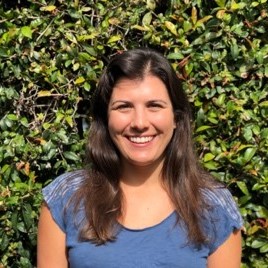
Samantha Sambado, MS
Samantha Sambado is currently pursuing an ecology, evolution, and marine biology PhD at the University of California, Santa Barbara with Dr. Cherie Briggs and Dr. Andy MacDonald to better understand how vector-borne diseases spread using empirical and theoretical frameworks. She completed her Master of Arts in probability and applied statistics with a concentration on data science in 2023 and completed her Master of Science in microbiology in 2019. She hopes to stay connected with other PacVec researchers to continue collaboration on vector-borne disease projects and exchange ideas of how to make basic science applicable to public health.
- Macro-parasites and micro-parasites co-exist in rodent communities but are associated with different community-level parameters. Saloman J, Sambado SB, Crews A, Sidhu S, Seredian E, Almarinez A, Swei A et al. International Journal for Parasitology: Parasites and Wildlife. 2023. https://doi.org/10.1016/j.ijppaw.2023.08.006
- Linking Lyme disease ecology and epidemiology: reservoir host identity, not richness, determines tick infection and human disease in California. MacDonald AJ, McComb S, Sambado S. Environ. Res. Lett. 2022. https://doi.org/10.1088/1748-9326/ac9ece
- Detection and isolation of Rickettsia tillamookensis (Rickettsiales: Rickettsiaceae) from Ixodes pacificus (Acari: Ixodidae) from multiple regions of California. Paddock CD, Swei A, Trent E, Zhong J, Sambado S, Foley J et al. Journal of Medical Entomology. 2022. https://doi.org/10.1093/jme/tjac038
- Mixed transmission modes promote persistence of an emerging tick-borne pathogen. Sambado S, Saloman J, Crews A, Swei A. Disease Ecology. 2020 Jun 21. https://doi.org/10.1002/ecs2.3171
"PacVec has been a springboard in my early career. Support from two training grants have provided funds for my masters (SFSU with Dr. Andrea Swei) and PhD (UCSB with Dr. Cherie Briggs) education. Through these training grants, I have gained experience with applying for grants, presenting at conferences in poster and oral formats, and writing scientific papers and reports. These experiences within the PacVec community have built a rich and diverse network of public health practitioners and academic researchers who have been generous with their time and knowledge. I am incredibly grateful for the opportunity to become more involved in the PacVec community."

Cherie Briggs, PhD
Professor, University of California, Santa Barbara
Dr. Cherie Briggs’ research combines modeling and experiments to understand the factors affecting the dynamics of animal populations. Her lab is working on a number of projects involving disease-host or parasitoid-host interactions, including frog-killing chytrid fungus and the distribution of Lyme disease in California.
"Investigating climate adaptation for improved Aedes sierrensis control"

Lisa Couper, PhD, MS
Dr. Lisa Couper is a postdoctoral fellow in the Division of Environmental Health Sciences at the University of California, Berkeley, working with Dr. Justin Remais. She received her PhD in biology from Stanford University and was advised by Dr. Erin Mordecai. She completed her master’s degree in microbiology at San Francisco State University in 2018 and her bachelor's degree in environmental science at the University of North Carolina in 2014. Dr. Couper is broadly interested in the impacts of global change on infectious disease ecology and evolution. Her research focuses on how climate change may alter the distribution of vector-borne diseases and how vectors may adapt to warming through ecological and evolutionary mechanisms. Moving forward, Dr. Couper intends to pursue a career in academic ecological research and establish a research program that is strongly aligned with applied vector management needs.
- Host blood meal identity modifies vector gene expression and competency. Ring K, Couper LI, Sapiro AL, Yarza F, Chou S, Swei A et al. Molecular Ecology. 2022. https://doi.org/10.1111/mec.16413
"Receiving the PacVec training grant allowed me to pursue this research project investigating climate adaptation in tree hole mosquitoes and facilitated collaborations with vector control practitioners, which has been invaluable for the research but also my own scientific growth. Further, it provided me an opportunity to share results from this work (e.g., at the PacVec annual conference) and gather feedback from a wide audience."

Erin Mordecai, PhD
Associate Professor, Stanford University
Dr. Erin Mordecai is an ecologist who studies the dynamics of infectious diseases within ecological communities, including humans. Her work seeks to find generality amidst this complexity by identifying nonlinear responses and incorporating them into data-driven models of infectious disease systems. This work is particularly important for understanding, predicting, and mitigating the effects of accelerating global change on infectious disease. Active areas of research include: (1) the ecological role of disease in regulating species interactions; (2) impacts of climate on disease dynamics; (3) impacts of land use change on disease transmission; (4) drivers of epidemic dynamics and control. Her long-term goal is to understand the dynamics of ecological systems and their influence on diseases in humans, plants, and animals, ultimately aiming to inform policy that benefits both human and ecosystem health.
"Comparative genomics of Aedes albopictus in the Pacific Islands for developing arbovirus vector dispersal models"
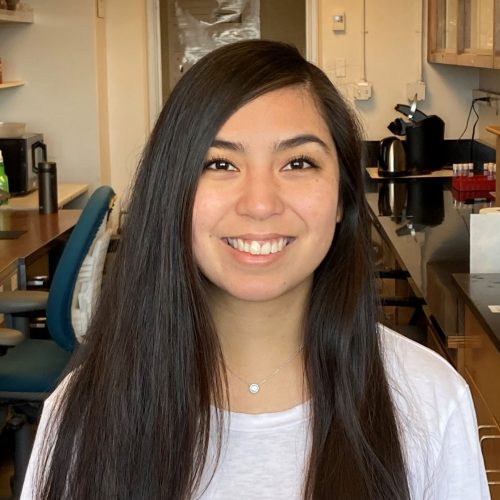
Christine Anne Tabuloc, PhD
Dr. Christine Anne Tabuloc is a postdoctoral researcher at the University of California, Davis, where she completed both her Doctor of Philosophy and Bachelor of Science. She joined Dr. Chiu's Clock Lab as an undergraduate research assistant in 2012. Working in the Clock Lab has helped her realize how much she enjoys mentoring, teaching, and conducting research. After completing her PhD, Dr. Tabuloc would like to pursue a career in teaching at a primarily undergraduate research university.
"Receiving a training grant from PacVec has allowed me to learn new techniques in bioinformatics. Specifically, I learned how to analyze a population genetics dataset. The project this grant supported has also strengthened my skills in whole genome library preparation for high throughput sequencing."
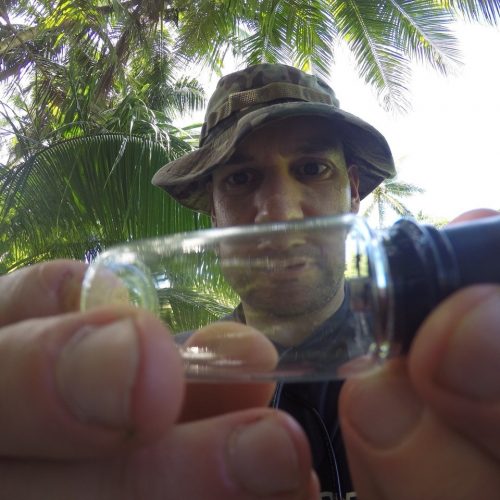
Adam Vorsino, PhD
Dr. Adam Vorsino is an ecologist for the U.S. Fish and Wildlife Service (USFWS) in Honolulu, Hawaii. Dr. Vorsino is dually charged with both developing tools and informing conservation managers of the most appropriate methodological and scientifically valid path forward. He is currently assisting with the development and advancement of the next generation of conservation tools to manage and solve some of the region’s most intractable conservation issues.
- A magnetic-bead-based mosquito DNA extraction protocol for next-generation sequencing. Chen TY, Vorsino AE, Kosinski KJ, Romero-Weaver A, Chiu JC, Lee Y et al. JoVE. 2021. https://doi.org/10.3791/62354
"The training grant was pivotal in familiarizing me with the foundational elements of whole genome sequencing and bioinformatics. It has advanced my abilities significantly."

Joanna Chiu, PhD
Professor and Vice Chair, University of California, Davis
Dr. Joanna Chiu is a professor in the Department of Entomology and Nematology at the University of California, Davis. The Clock Lab leverages genomics and molecular genetics approaches to understand the molecular and neuronal mechanisms underlying animal physiology and behavior. The Clock Lab also works with relevant stakeholders to develop new strategies for managing insect pests and contribute to long-term global food security and public health.
"Population phylogenomics of the West Nile virus vector: Culex quinquefasciatus in the southwestern United States"
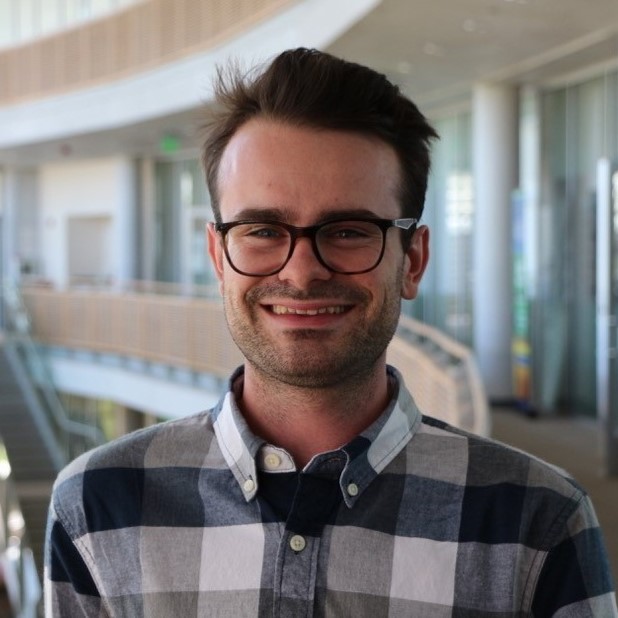
Zachary Barrand, BS
Zachary Barrand is a PhD candidate in the Department of Biological Sciences at Northern Arizona University. He graduated from Northern Arizona University with a Bachelor of Science in Microbiology with a research emphasis in the phylogenetic diversity of tick-borne co-infections throughout the United States. Zachary’s research interests focus on the vector genetic and microbiome influences on the maintenance, evolution, and transmission of vector-borne infectious diseases between reservoir, wildlife, and human hosts. Zachary plans to pursue a postdoctoral fellowship following completion of his PhD to establish a career as a vector-borne infectious disease researcher in academia.
"Receiving the training grant from PacVec has allowed me to dedicate the time needed to strengthen my scientific research skills through developing a new long-range PCR protocol to amplify complete mitochondrial genomes of mosquitoes and learn third generation sequencing skills by sequencing the amplified genomes on an Oxford Nanopore MinION sequencer."

Crystal Hepp, PhD
Associate Professor, Translational Genomics Research Institute
Dr. Crystal Hepp is an associate professor in the Pathogen and Microbiome Division of the Translational Genomics Research Institute. Dr. Hepp has a background in evolutionary biology and genomics, and her lab focuses heavily on using environmental surveillance of pathogens, especially viruses, to understand their spread over time and space.
"Virus testing of Aedes aegypti pools for dengue surveillance"

Joshua Arnbrister, BS
Joshua Arnbrister is currently pursuing a Master of Science in entomology at the University of Arizona and he plans to continue in a PhD program. After completing his PhD, he hopes to pursue a career in vector control and surveillance.
"It gave me the funding to get training in practical skills such as PCR and survey creation, that I would not have been able to get otherwise."

Kathleen Walker, PhD
Associate Professor, University of Arizona
Associate Specialist, Insect Discovery Outreach Program
Dr. Kathleen Walker is an associate professor in the Department of Entomology at the University of Arizona and an associate specialist directing the Insect Discovery Outreach Program, providing a variety of resources to help teachers make the most of their students’ fascination with the amazing world of insects. The Walker Lab studies the ecology of arthropod vectors that inhabit the peri-domestic environment, focusing on the influence of climate and human behavior on vectorial capacity. The Walker Lab has focused on Aedes aegypti on the U.S./Mexico border, investigating the interactions between climates, mosquito longevity and dengue transmission. They are now broadening their focus to examine the ecology of Rhipicephalus sanguineus, the brown dog tick, and factors driving regional rickettsia outbreaks.
"Flea-borne typhus in California: socioeconomic associations and mathematical transmission model"
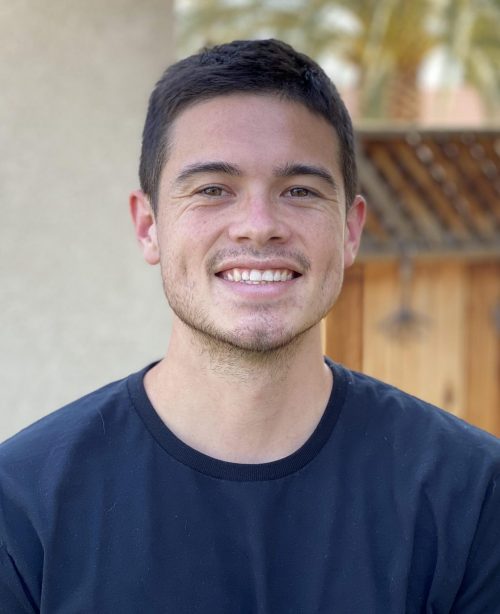
Kyle Yomogida, BS
Kyle Yomogida is a PhD candidate in the Graduate Group of Epidemiology at the University of California, Davis. He graduated from California State University, Long Beach in 2017 with a degree in health science - community health education. His experiences in public health include health behavior research projects regarding prescription stimulant misuse and two years of work for Long Beach Communicable Disease Control Program in southern California. His interests include infectious and zoonotic diseases with his PhD work, specifically focused on socioeconomic and environmental factors related to human flea-borne typhus incidences in southern California.
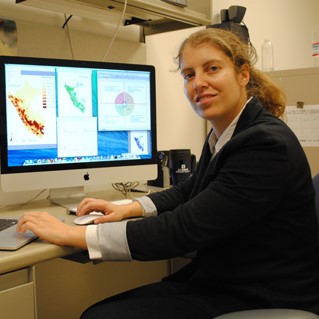
Beatriz Martinez-Lopez, PhD, MPVM, DVM
Professor and Agronomist, University of California, Davis
Dr. Beatriz Martinez-Lopez is a professor of infectious disease epidemiology at the Department of Medicine & Epidemiology, Veterinary School, University of California, Davis and director of the Center for Animal Disease Modeling and Surveillance. Her research focuses on the development and implementation of quantitative methods such as epidemiological modeling, risk assessment, geostatistical methods or network analysis to unravel complex epidemiological problems at the wild-domestic-human interface. Current research includes epidemiology and transmission dynamics of diseases such as African swine fever, foot-and-mouth disease, classical swine fever, Aujeszky´s disease, African horse sickness, bluetongue, avian influenza, West Nile, Rift Valley Fever, bovine tuberculosis or porcine reproductive and respiratory syndrome.
TRAINING GRANT PROGRAM
PacVec’s training grant program intends to provide career development opportunities for individuals interested in public-health-relevant research on vector-borne diseases and to enable additional research and training opportunities that will contribute to the development of the public health workforce.
TRAINING GRANT RECIPIENTS
The Pacific Southwest Regional Center of Excellence in Vector-Borne Diseases is supported through Cooperative Agreement Number 1U01CK000649 between the Centers for Disease Control and Prevention (CDC) and the University of California, Davis.
© 2024 – All rights reserved